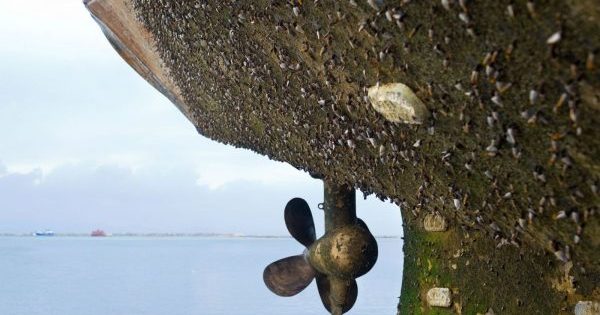Researchers from the Italian University of Pavia, conducted the first research in the Mediterranean combining boat and marina sampling data to better understand how private boats spread alien species, resulting to marine pollution.
According to Aylin Ulman, lead author of the study, biofouling is not regulated in the Mediterranean for the time being, adding that this needs to change.
She added that boats that sail in the Eastern Mediterranean marinas pose a great risk to the marine environment spreading alien species due to the closer proximity to the Suez Canal, where most alien species enter the Mediterranean.
According to the study, the biggest predictors of high species richness on boats were visible biofouling in niche areas, as ladders and propellers combined with longer elapsed time since a professional clean. Also, a number of boats only had a small clumps of visible biofouling, although these could ‘accommodate’ as any eleven alien species.
The researchers surveyed over 600 boat owners and sampled the same boat hulls for NIS (non‐indigenous species) in 25 marinas across the Mediterranean, from France to Cyprus, to determine which factors (i.e. boat characteristics, travel behaviour, home marina) are associated with higher NIS richness on boat hulls.
Moreover, the samples of the findings were collected by scuba diving, snorkelling or when the boat was on land.
Following, the results:
- Recreational vessels travel on an average of 67 days and 7.5 visited marinas per annum; This results to spreading of NIS, especially as 71% of sampled vessels host at least one (and up to 11) NIS;
- Boats with high NIS richness strongly correlate with home marinas with high NIS richness.
- Over half of the vessels were carriers of NIS which were not yet present in the marinas they were visiting.
- Colonization of NIS occurred rapidly, even on boats that had recently had their hulls cleaned professionally, meaning that some niche areas might get missed during cleaning operations.
The researchers of the study recommend that the ‘missed areas’ are given better attention during the cleaning.
In 2018, the IMO launched a new partnership with the Global Environment Facility (GEF) and the United Nations Development Programme (UNDP), aiming to address the negative environmental impacts of the transfer of aquatic species through ships, also known as biofouling.
Aylin Ulman highlighted that
The actual number of alien species could be much more than were found in this study since macroalgae were not identified here due to time limitations.




























































